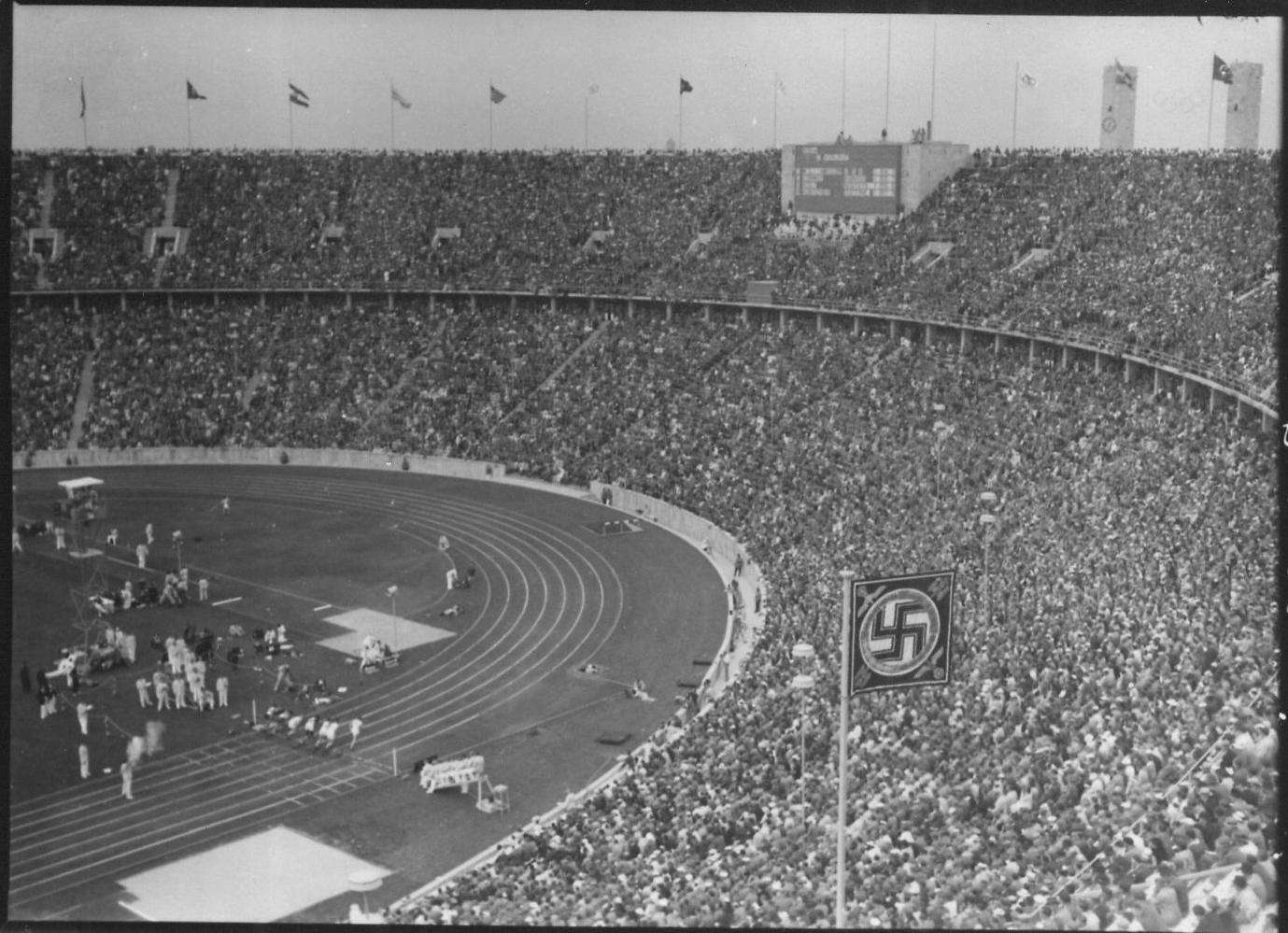1936 Olympic Stadium in Berlin, Germany
1936
Add to Favorites:
Add all page(s) of this document to activity:

The 1936 Summer Olympics, held in Berlin, Germany, are most well-known for the controversy surrounding them. There was strong support in the United States and around the world for a boycott because of the Nazi regime’s racist ideology and discriminatory actions against Jews. The US team attended the games, but several Jewish athletes chose to boycott.
In the end, the prevailing story of the games was that of the African-American track and field champion Jesse Owens. He won four gold medals during the games in track and field —his performance was widely considered a blow to the Nazi belief in Aryan supremacy.
This image comes from a series of photographs taken by Germany during the Berlin Olympics that were seized following World War II.
In the end, the prevailing story of the games was that of the African-American track and field champion Jesse Owens. He won four gold medals during the games in track and field —his performance was widely considered a blow to the Nazi belief in Aryan supremacy.
This image comes from a series of photographs taken by Germany during the Berlin Olympics that were seized following World War II.
This primary source comes from the National Archives Collection of Foreign Records Seized.
National Archives Identifier: 16801973
Full Citation: 1936 Olympic Stadium in Berlin, Germany; 1936; Summer Olympic Games, Berlin, 8/1936 - 8/1936; National Archives Collection of Foreign Records Seized, Record Group 242; National Archives at College Park, College Park, MD. [Online Version, https://docsteach.org/documents/document/1936-olympic-stadium-berlin-germany, April 19, 2024]Rights: Public Domain, Free of Known Copyright Restrictions. Learn more on our privacy and legal page.



